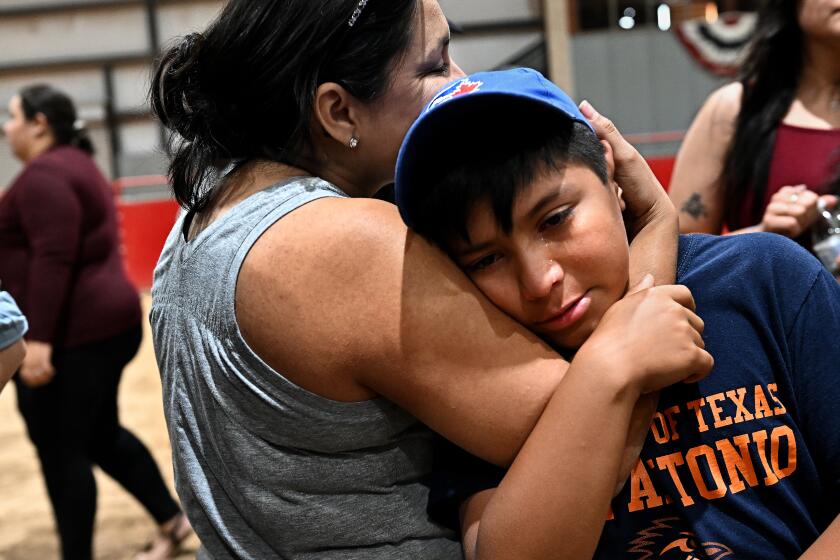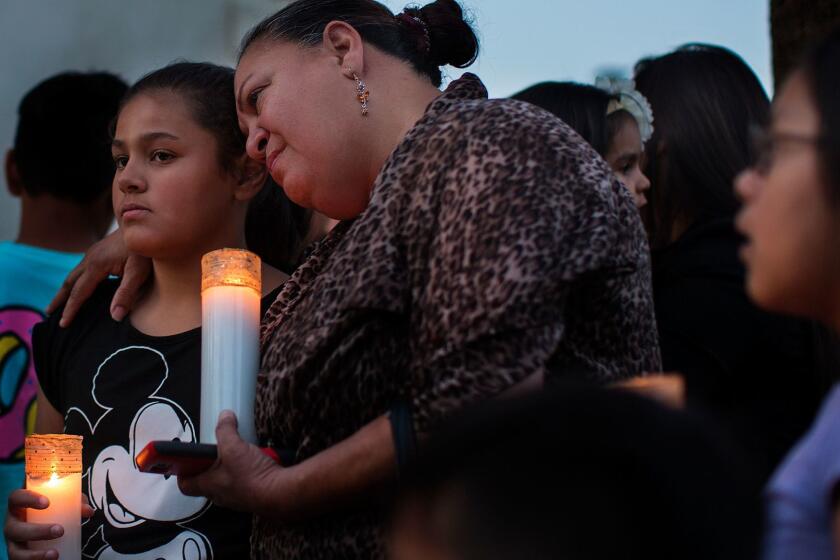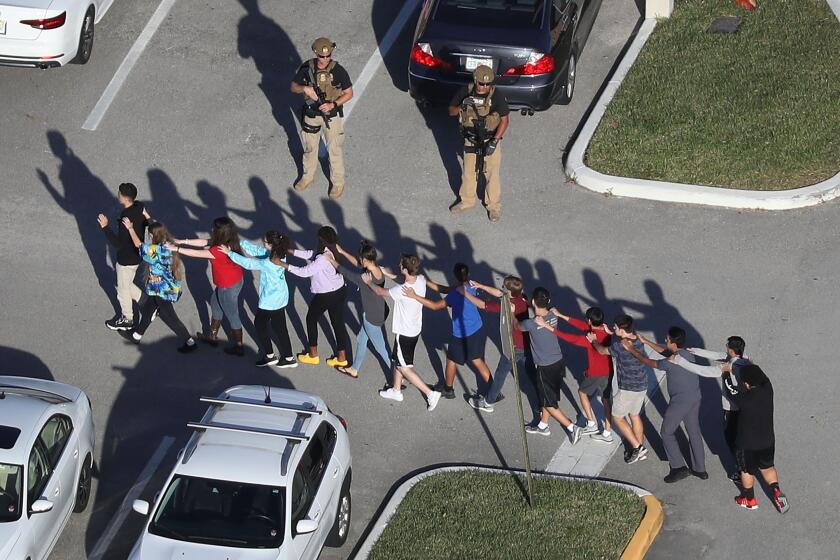Column: ‘What are we doing?’ After the Texas school shooting, Sen. Chris Murphy speaks for us all
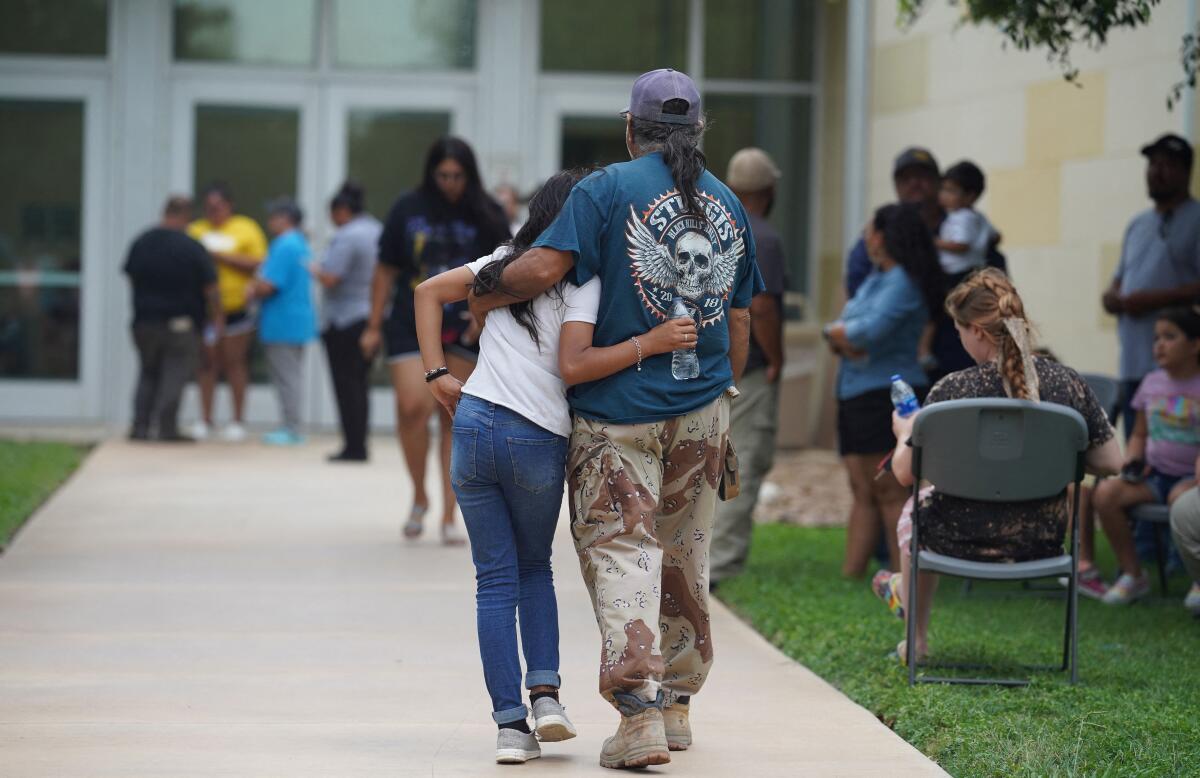
- Share via
“What are we doing?”
That’s what Sen. Christopher S. Murphy (D-Conn.) asked after 21 people, including 19 children, were killed during a mass shooting at a Texas elementary school on Tuesday, a little more than a week after what authorities have called the racially motivated murder of 10 people in a Buffalo, N.Y., supermarket.
“There’ve been more mass shootings than days in the year. … Our kids are living in fear,” he said.
A longtime supporter of gun control legislation, Murphy was specifically addressing his colleagues in the Senate chambers. “Why go through all the hassle of getting this job, of putting yourself in a position of authority if your answer, as the slaughter increases as our kids run for their lives, we do nothing?”
The five-minute clip went viral in part because he could have been speaking to every American when he said: “This wasn’t inevitable. This only happens in this country. Nowhere else … and it is a choice. It is our choice. To let it continue. What. Are. We doing?”
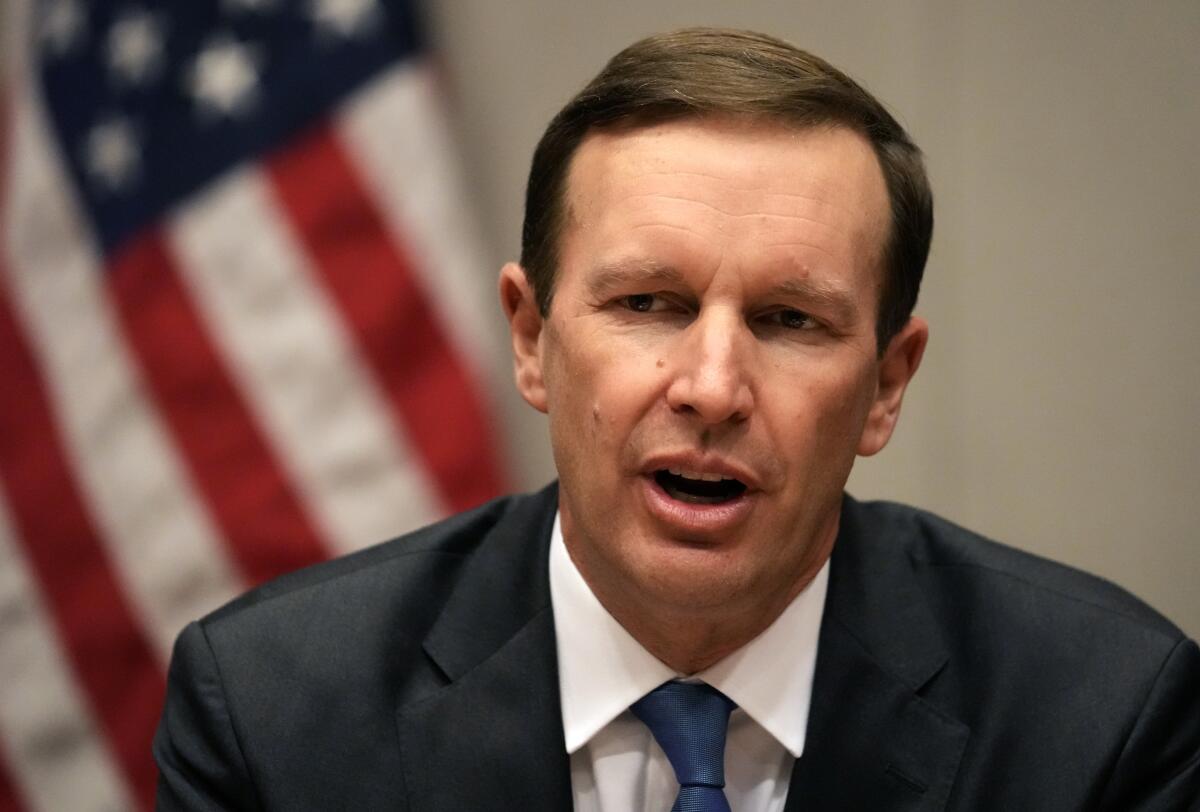
He was certainly speaking for most Americans, the vast majority of whom support some form of gun control, including a ban on semiautomatic weapons. Early reports indicate at least one such weapon possibly was used to gun down students and two teachers at Robb Elementary School in Uvalde, Texas.
When he said “I’m here on this floor to beg, to literally get on my hands and knees to beg” for Congress to do something, to “stop sending this quiet message of endorsement to these killers whose brains are breaking, who see the highest levels of government doing nothing, shooting after shooting,” I know he was speaking for me.
I would absolutely beg on my hands and knees in the Senate chamber or anywhere else, in sackcloth and ashes and on broken glass, if I thought it would help. I’m tired of living in fear for my children, my friends, my life, my country, because some people think protecting the right to own guns designed for mass slaughter is more important than protecting the lives of Americans.
More important than ensuring the safety of our schools, our stores, our churches, our places of congregation.
The gunman who killed 19 children and two teachers at a Texas elementary school barricaded himself inside a fourth-grade classroom, officials say.
I am not anti-gun. I grew up in a community with guns; my brother and I knew when hunting season started because we heard it. We kept the dogs in, and avoided certain parts of the nearby woods. We grew up playing with cap guns, then BB guns, and my father taught us to shoot his handgun and rifle. He wanted us to understand how they worked and remember always that, like an automobile, they were deadly weapons.
But no one I knew had semiautomatic weaponry in the woodshed; no one complained because they couldn’t take their guns to a restaurant, no one posed with military-style weapons for their Christmas pictures.
My kids grew up in a home without guns not because I hate guns, but because they went to schools that had regular shooter drills. My husband grew up ducking under his desk in fear of the Russians; my kids learned escape routes and how to quickly lock the classroom doors because of armed Americans.
We’ve been lucky, if you consider raising three children who have never experienced gun violence in their schools thus far “lucky,” which I suppose you should. Think about that for a minute.
A few years ago, before the pandemic, I heard what sounded like gunfire come from the direction of my daughter’s elementary school. I was in the car before I could even think clearly. A block away, I passed a construction crew putting a new roof on a house with what seemed to be a nail gun. Having located the source of the sound, I nearly vomited in relief. But I still drove to the mercifully peaceful school and sat there, imagining what life would be like if it hadn’t been the roofers I heard.
So honestly, what are we doing? As a columnist and a critic, I have written about mass shootings so often I really don’t know what to say anymore. I remember in the early days of the pandemic, when my youngest was struggling with online learning, she wiped her tears and looked at me with a grin saying: “Well, at least I don’t have to worry about school shootings.”
North Park Elementary School in San Bernardino was closed on Tuesday, the day after a man walked into a special education classroom and killed his wife, an 8-year-old student and then himself.
How did this become our reality?
Like many, I thought the horror of Sandy Hook would yank gun control out of the swamp of gun-lobby-controlled politics and into the realm of public safety. Surely we could all agree that this slaughter of innocents should never happen again, that we should do everything in our power to ensure that it would never happen again.
But we didn’t agree and it has happened again, many times and often with higher body counts. Mass shootings are no longer aberrant tragedies; they are part of near-daily life, creating the kind of collective anxiety, uncertainty, anger and fear that is the goal of any terrorist.
Imagine if a hostile nation were committing these crimes — the outrage, the resolution, the money and personnel that would be dedicated to ending them.
But we are the hostile nation here, terrorizing ourselves while too many of our leaders claim there’s nothing they can do.
Our culture has become one of thoughts and prayers, broken heart emojis, and brief spates of outrage met by pre-emptive demands by those who believe the answer to gun violence is more guns, that we should not “politicize” tragedy by making it about guns.
Except it is about guns. Not all guns, just the kind designed to shoot a lot of people with minimal effort.
Mentally ill people can do all sorts of damage, but they can kill 19 kids at an elementary school, or 17 people at a high school, or 58 people at a music festival, only if they have a specific kind of gun. Racist people can do many terrible things, but they can kill 10 people in a grocery store or 23 people at a Walmart only if they have a specific kind of gun.
Most of which they have bought legally.
When that kind of butchery is done by weapons purchased legally, clearly the laws need to change.
But the laws are not changing, at least not in the direction of controlling the number and type of weapons available to potential mass murderers. So what are we doing?
At least 18 children and two adults were killed at a Texas elementary school on Tuesday, joining the grim list of the deadliest campus incidents ever.
As it stands, we are making it abundantly clear, to ourselves and the rest of the world, that mass shootings are perfectly acceptable in America. That we are not interested in protecting even the most vulnerable members of our society, that the regular slaughter of children in their classrooms and adults at the market is the price of living in this country.
That we love our guns more than literally anything else.
Except we don’t. Or at least most of us don’t. In poll after poll, most Americans, including most gun owners, support some form of gun control, including universal background checks and red flag laws. As voters, we are responsible for electing officials who will see those laws passed, who will see this crisis of gun violence for what it is and do everything in their power to end it.
So what are we doing? Unless we really are ready to collectively and publicly endorse a culture of self-imposed terrorism, to co-sign the future deaths of countless children and adults, then the answer can no longer be nothing.
More to Read
The biggest entertainment stories
Get our big stories about Hollywood, film, television, music, arts, culture and more right in your inbox as soon as they publish.
You may occasionally receive promotional content from the Los Angeles Times.
